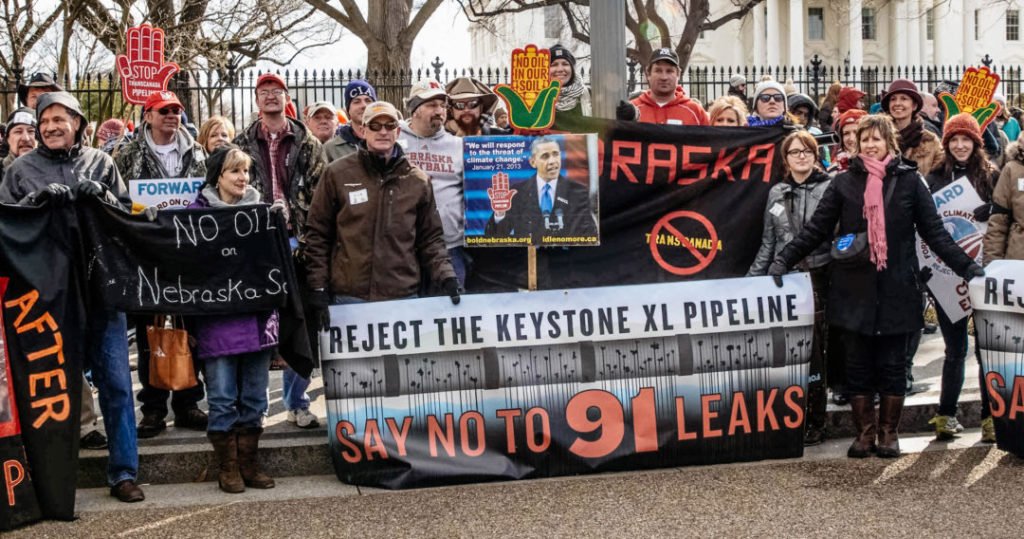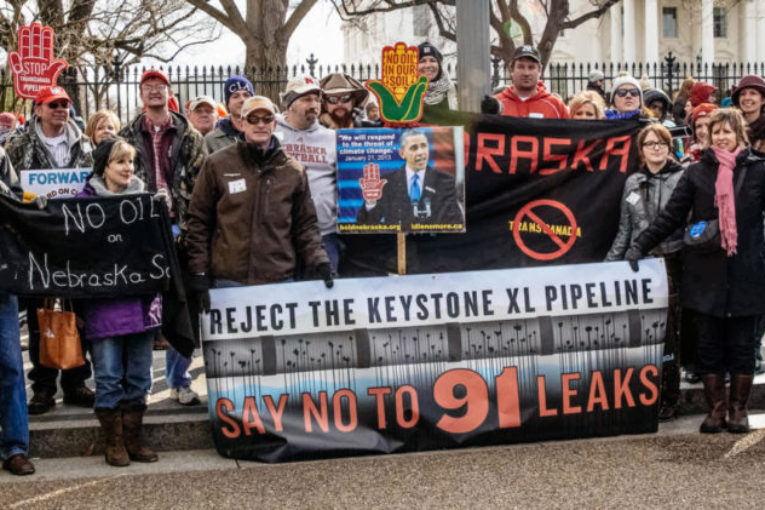 Nebraska's main anti-pipeline group is trying to rally opposition to the TransCanada Keystone XL project's recently approved route through the state, tracking down landowners it says were not given a voice in the regulatory process.
Nebraska's main anti-pipeline group is trying to rally opposition to the TransCanada Keystone XL project's recently approved route through the state, tracking down landowners it says were not given a voice in the regulatory process.
If it succeeds, Bold Nebraska could throw up new roadblocks to the controversial project to move Canadian oil to U.S. refineries, backed by U.S. President Donald Trump, by pressing regulators to revisit TransCanada's application, or by suing if they refuse.
The Nebraska Public Service Commission issued an approval for Keystone XL to pass through the state in late November, removing the last big regulatory obstacle for the long-delayed project. But the commission's approval was not for the route TransCanada had singled out in its application, but for an alternative that shifts it closer to an existing pipeline right-of-way that affects scores of new landowners.
Jane Kleeb, the head of Bold Nebraska which has been fighting the pipeline for years, said the group was beginning meetings with these new landowners to rally opposition to the line, starting Wednesday and continuing into next week.
“We hope to begin the education process with landowners so they understand this is a lifetime easement for a one-time payment,” she told Reuters. “We aim to engage at least 20 percent of the new landowners in the legal landowner group.”
The project has been a lightning rod of controversy since it was proposed a decade ago, with environmentalists making it a symbol of their broader fight against fossil fuels and global warming.
Bold Nebraska already has about 100 landowners who live along the pipeline's original proposed route signed up against Keystone XL, the group says. They include a number of ranchers worried that spills could poison their cattle.
TransCanada says the pipeline would be good for the economy and could be run safely. The company said it had about 90 percent support among landowners for the proposed route, but had not yet negotiated support along the approved route.
Demonstrating opposition along the approved route could add heft to anti-pipeline efforts. Lawyers for opponents of the line argued at a hearing Tuesday that Nebraska regulators had no authority to approve the “alternative” path, and was only
allowed to rule on the proposed route.
David Domina, one of the attorneys, added that residents along the approved path had not been included in the regulatory process, and that social and environmental impacts had not been properly studied.
TransCanada, meanwhile, requested that the public service commission allow it to amend its application retroactively to head off legal challenges. The commission is considering TransCanada's request.
Trump handed TransCanada a federal permit for the 1,180 miles (1,899 km) pipeline in March, reversing a decision by former U.S. President Barack Obama in 2015 to block it on environmental grounds.
(Reporting by Kevin O'Hanlon; Writing by Richard Valdmanis; Editing by Andrew Hay)
You can read more of the news on source

 Nebraska's main anti-pipeline group is trying to rally opposition to the TransCanada Keystone XL project's recently approved route through the state, tracking down landowners it says were not given a voice in the regulatory process.
Nebraska's main anti-pipeline group is trying to rally opposition to the TransCanada Keystone XL project's recently approved route through the state, tracking down landowners it says were not given a voice in the regulatory process. 


